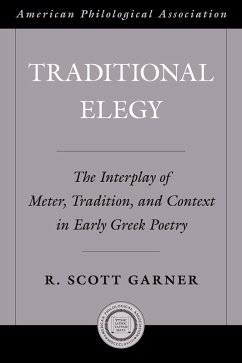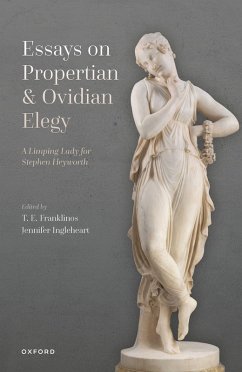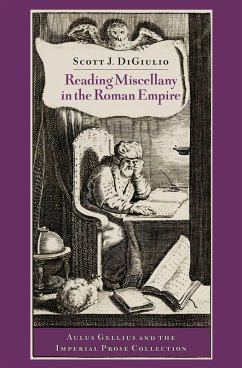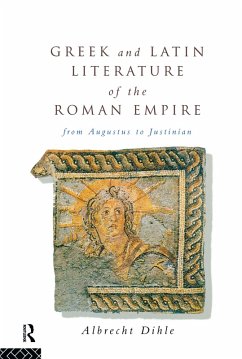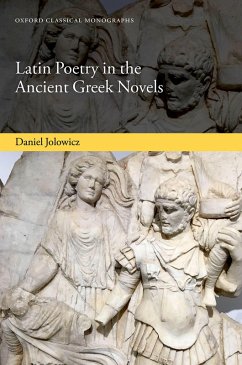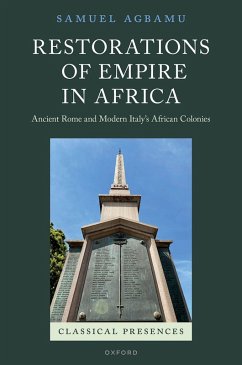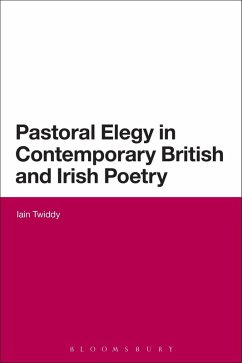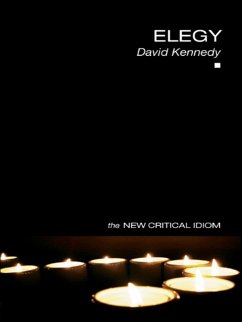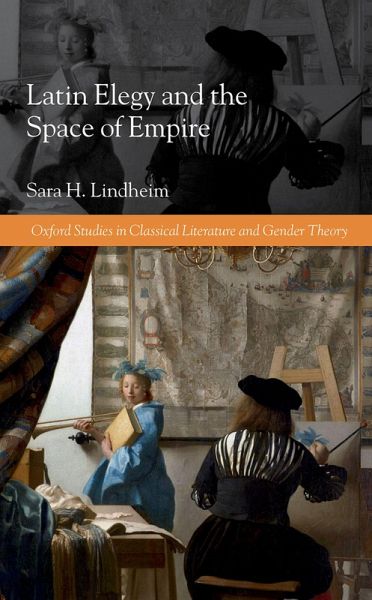
Latin Elegy and the Space of Empire (eBook, PDF)
Versandkostenfrei!
Sofort per Download lieferbar
39,95 €
inkl. MwSt.
Weitere Ausgaben:

PAYBACK Punkte
20 °P sammeln!
In a time of aggressive imperial expansion, Latin elegists expressed geographical concerns about boundaries and limits through masculine and feminine subjects in their poetry. Latin Elegy and the Space of Empire argues that the subject in Latin elegy, beginning with Catallus, constitutes itself in relation to the dynamic space of empire from the late Republic to the end of the Augustan age. The lack of fixiity in the elegiac subject and space of empire go hand in hand, and in imagining geographical space the question of our very nature as subjects comes to the fore. Catullus, Propertius, Tibul...
In a time of aggressive imperial expansion, Latin elegists expressed geographical concerns about boundaries and limits through masculine and feminine subjects in their poetry. Latin Elegy and the Space of Empire argues that the subject in Latin elegy, beginning with Catallus, constitutes itself in relation to the dynamic space of empire from the late Republic to the end of the Augustan age. The lack of fixiity in the elegiac subject and space of empire go hand in hand, and in imagining geographical space the question of our very nature as subjects comes to the fore. Catullus, Propertius, Tibullus and Ovid each offers his own unique expression of the gendered subject, and their poetry runs the gamut of responses to the expanding geographical empire. First comes the dream of Roman imperium sine fine, an empire that capaciously stretches to the ends of the inhabited world. And yet, imperium sine fine requires the existence of some sort of fines, even if the fantasy demands that they be overrun. Formlessness, or worse, rapidly alternating forms, gives rise to anxieties and the desire to set down some fines, to establish where, exactly, the boundaries of empire are, what belongs "inside" and what can be relegated to "outside". But fines, cartographically speaking, are never as stable as we want them to be, and, for a rapidly expanding empire, are always under pressure. The very constitution of the gendered elegiac subject mirrors, anticipates, runs parallel to the problems and anxieties that the map of expanding empire both tries to solve, yet simultaneously reveals in its production of space.
Dieser Download kann aus rechtlichen Gründen nur mit Rechnungsadresse in A, B, BG, CY, CZ, D, DK, EW, E, FIN, F, GR, HR, H, IRL, I, LT, L, LR, M, NL, PL, P, R, S, SLO, SK ausgeliefert werden.




